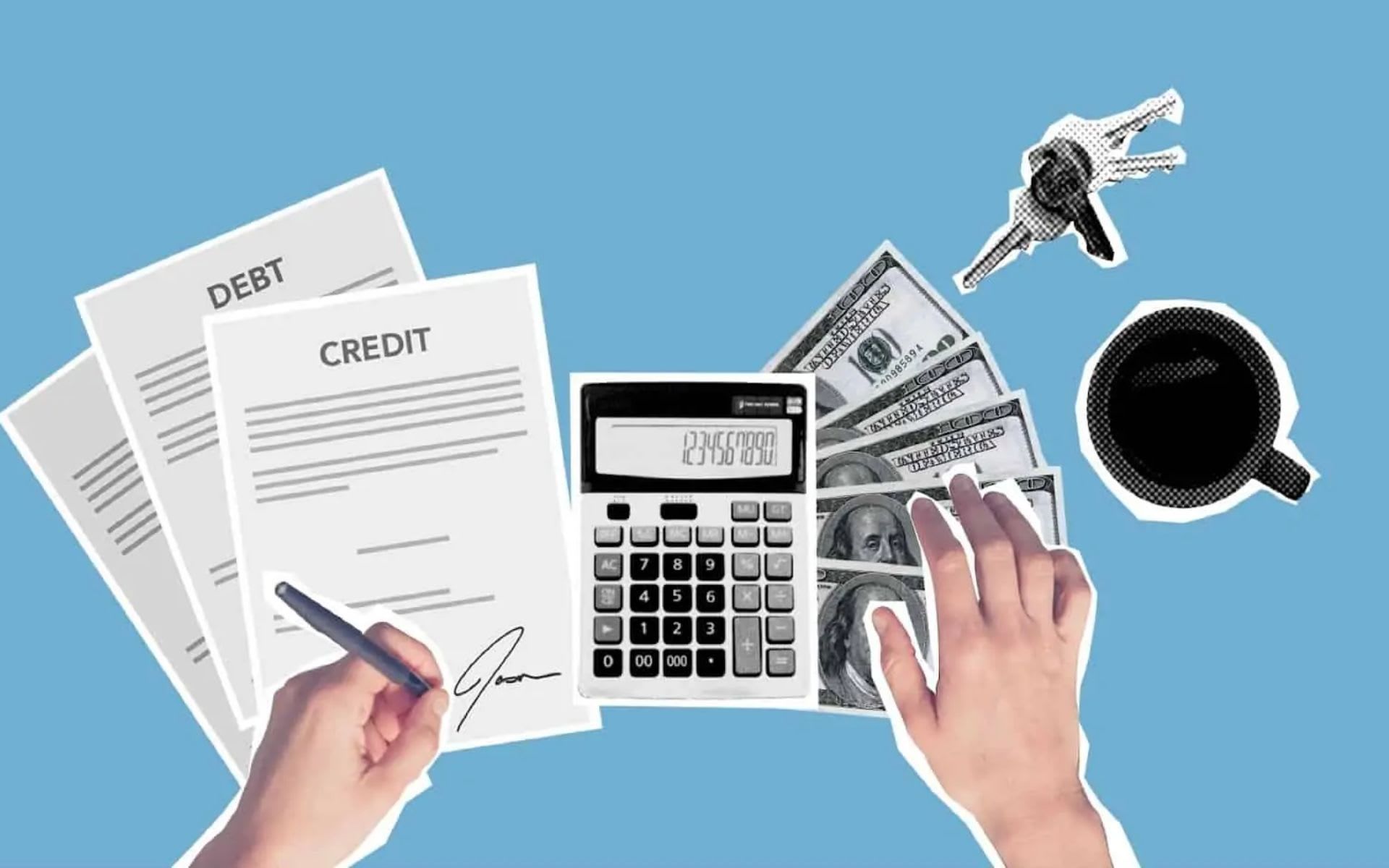Does Buying a House Hurt Your Credit?
The quick – and good – answer: buying a house helps your credit over the long run if you make your mortgage payments as agreed.
In this article, we’ll break down what makes up a credit score, and how buying a house can hurt or help your credit. We’ll also look at what credit score you need to buy a house, and what’s even considered a good score in the first place. Let’s start by looking at what factors make up your credit score.
What Makes Up a Credit Score
Your FICO credit score is made up of five categories: payment history (35%), amounts owed (30%), length of credit history (15%), new credit (10%) and credit mix (10%) [source]. Let’s break each one down:
Payment history – your payment history contributes the most to your credit score, so it’s extra important to make sure your debt payments are made on time. This includes credit card payments, student loans, mortgages, auto loans, and any other debts you owe that get reported to the credit bureaus. Usually a payment is reported as late to the credit bureaus if it’s past due for more than thirty days. A history of no late payments if best, but one or two late payments won’t drag down your score too much.
Amounts owed – ranking second in importance behind payment history, the amount you owe on your debts matters greatly to your credit score. Your credit utilization is a big factor towards your score, and generally lower is better. Keeping your utilization under 30% is a good rule of thumb. Paying off your credit cards every month or only carrying a small balance helps this area of your score greatly. Paying down your installment loans (like your car loan) helps here as well.
Length of credit history – this one is a little harder to control than some of the other factors that make up your credit score. The more history you have with credit, the better, but that doesn’t mean you’ll have a bad score if you haven’t used credit for very long. FICO scores look at how long your oldest credit account has been open, how recent your newest credit account is, and an average of all your different accounts. Keeping credit cards open, even if you don’t use them anymore, can help with your credit history length.
New credit – this is where inquiries on your credit report come into play. Your score is impacted by recent credit inquiries in the last twelve months, and generally the lower the number, the better. However, there are certain times when multiple inquiries just make sense, and your score factors that into the equation. When you’re shopping for a big purchase like a car or a house, for example. You’ll want to shop around for the best rate, so you may have multiple inquiries back to back. New accounts opened also affect the other areas of your score in different ways.
Credit mix – finally, your FICO score takes into consideration the different types of credit you have. Having a healthy mix of credit accounts shows lenders you can handle different types of debt obligations. The most common types of credit are revolving accounts such as credit cards and lines of credit, and installment loans such as auto loans and mortgages. It can be beneficial to show you have experience managing different types of credit.
How Buying a House Affects Your Credit
Now that we know what actually determines your credit score, we can look at ways that buying a house will affect your credit.
Ways buying a house hurts your credit (temporarily):
Each lender you consider financing with will want to pull your credit report to determine your credit-worthiness. Those inquiries on your credit report can lower your score by a few points.
When your new mortgage is reported to the credit bureaus, a large amount of debt shows up all at once, affecting the amount owed portion of your score. The new credit and length of credit history parts of your score are also affected.
A study by LendingTree shows credit scores fall for about four months after getting a new mortgage, and recover after about 11 months total.
Ways buying a house improves your credit:
The biggest factor of your credit score is your payment history, so showing a positive repayment history over the life of your mortgage can greatly improve your score (or keep it high).
Paying down your balance over time will improve your amounts owed, and the longer you have your mortgage, the better your length of credit history will be.
Having a mortgage also adds another type of credit to your credit report, helping the credit mix portion of your score.
What Credit Score Do You Need to Buy a House?
Every lender is different and will require a different minimum credit score to qualify for a mortgage. Generally, most lenders require a minimum credit score of 620 to qualify for a conventional mortgage. You may be able to secure an FHA loan with a credit score as low as 500, depending on how much money you have to put down.
Of course, the higher your credit score is, the better interest rate you can expect on your mortgage. According to MyFICO, a credit score of 670 and up is considered good, and 740 and up is very good. Your lender will take your credit history into consideration when determining what interest rate to offer for your loan.
Want to learn more about the home buying process? Read The Home Buying Process: What to Expect When Buying a House.
Should I Buy a House if I Have Bad Credit?
Buying a house is one of the biggest financial decisions you can make. If you have a credit score on the lower end of the scale, it’s important to decide if you want to accept a mortgage with a high interest rate or other sub-par terms. Most mortgages range from 15 to 30 years, so even a slight increase in interest rate can cost you tens of thousands of dollars over the life of the loan.
If you have other options for housing, it may be wise to wait until your credit improves before getting a mortgage. If you focus on paying down other debts, especially maxed out credit cards or newer installment loans, over time you should see your score improve greatly.
There are lots of factors that come into play when deciding if a mortgage is right for you, including potential tax implications. Talk with a financial advisor or your CPA to decide what’s best for you and your financial situation.
Conclusion: Buying a House and Your Credit
Your credit is hugely important when buying a house. It’s one of the main factors lenders look at to decide if you’ll be approved for a mortgage and what kind of interest rate to offer you.
It’s also important to consider what effect buying a house will have on your credit, and if buying a house will hurt or help your credit in the long run. In this article, we’ve looked at the various ways your credit is affected by buying a house. With responsible repayment, buying a house can have a positive effect on your credit over the years.
Are you ready to start the home buying process? Let our team at Quantum Real Estate help! Our experts are ready to walk with you through the whole process. If you’re ready to buy or sell in the Placer county area, we’d love to visit with you. Click here to contact us. We look forward to talking with you soon!
















